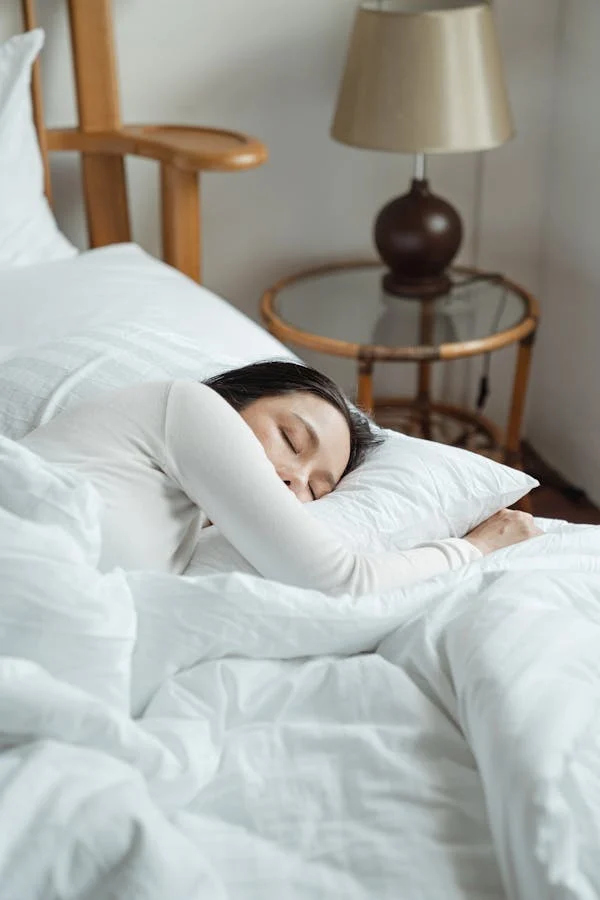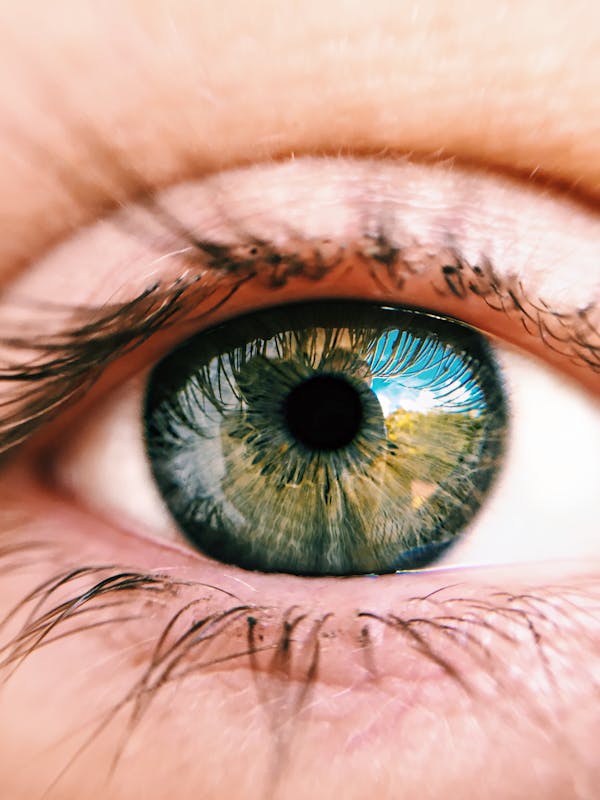Sleep is an essential part of maintaining overall health and well-being, yet many Americans struggle to get enough of it. “Why can’t I sleep?” has become a common question, and the issue is widespread. An estimated one-third of adults in the United States sleep six hours or less per night, far short of the recommended amount. This lack of adequate sleep has serious consequences for health, increasing the risk of obesity, diabetes, and heart disease. In addition to these chronic health conditions, insufficient sleep is linked to a variety of other problems, including sluggish reaction times, memory lapses, and a greater likelihood of headaches, stomach issues, and sore joints.
There are many factors that can make it difficult for people to get the sleep they need. Aging, various health conditions, poor lifestyle habits, and inadequate sleep hygiene all play a role. Additionally, some people suffer from sleep disorders such as insomnia and sleep apnea, which further interfere with their ability to get sufficient rest.
Fortunately, there are ways to improve sleep quality by addressing the underlying causes of poor sleep. This may include making changes to diet, incorporating more exercise into one’s daily routine, and establishing healthier sleep habits. Sleep is vital, and addressing sleep issues can make a big difference in overall health and well-being.
Why Is Sleep Important?
Sleep is crucial for many aspects of health, and getting the right amount of sleep is key to functioning at your best. Inadequate sleep, generally defined as less than seven hours per night for most adults, can have wide-ranging consequences for physical and mental health. When a person consistently fails to get enough sleep, they increase their risk for conditions such as obesity, diabetes, and heart disease.
In addition to these serious health risks, poor sleep is also associated with a number of mental and physical symptoms. People who are sleep-deprived are more likely to experience sluggish reaction times, memory lapses, headaches, stomach issues, and sore joints. Sleep is also linked to emotional well-being, and a lack of sleep can contribute to irritability, anxiety, and depression.
Effects of Partial Sleep Deprivation
Partial sleep deprivation occurs when you get some sleep but not as much as your body needs. Most people can manage for a day or two after a night of insufficient sleep, though they may not feel great. However, after two or more nights of short sleep, the effects of sleep deprivation become more apparent. Irritability and daytime sleepiness are common early signs of sleep deprivation. Work performance often suffers, particularly on tasks that require concentration or critical thinking. People may also experience headaches, stomach problems, sore joints, and memory lapses.
Long-term partial sleep deprivation, where a person gets less sleep than their body needs over the course of months or even years, can have even more serious consequences. This type of chronic sleep deprivation has been linked to weight gain, cognitive decline, and a higher risk of developing chronic health conditions such as diabetes, heart disease, stroke, high blood pressure, viral infections, and mental illnesses like depression and anxiety.
How Much Sleep Do I Need?
The amount of sleep a person needs varies based on their age and individual needs. In general, adults aged 18 to 60 are recommended to get at least seven hours of sleep per night. However, as people age, their sleep needs may change slightly.
- Adults aged 61 to 64 typically need between seven and nine hours of sleep per night.
- Adults aged 65 and older usually need between seven and eight hours of sleep per night.
It’s important to note that these are general guidelines, and some individuals may require more or less sleep. Children, in contrast, require significantly more sleep than adults:
- Toddlers (ages 1 to 2) need 11 to 14 hours of sleep per day, including naps.
- Preschoolers (ages 3 to 5) require 10 to 13 hours of sleep per day, including naps.
- School-age children (ages 6 to 12) need between nine and 12 hours of sleep per night.
- Teenagers need between eight and 10 hours of sleep per night.
Why Can’t I Sleep?
While everyone experiences the occasional sleepless night, chronic sleep problems can be a sign of a more serious issue, such as a sleep disorder. Insomnia and sleep apnea are two of the most common conditions that interfere with sleep.
- Insomnia: People who suffer from insomnia may have difficulty falling asleep, staying asleep, or waking up too early. While everyone experiences short-term bouts of insomnia from time to time, some people have chronic insomnia, which is defined as insomnia that occurs at least three nights per week for three months or more.
- Sleep Apnea: This disorder causes people to stop breathing for short periods during sleep. These interruptions, called apneas, can prevent a person from getting restful sleep and may leave them feeling tired and sluggish during the day.
What Is Insomnia?
Insomnia is the most common sleep disorder and is characterized by difficulty falling asleep or staying asleep. People with insomnia may have trouble falling asleep, wake up frequently during the night, or wake up too early in the morning. Some may also experience non-restorative sleep, where they wake up feeling tired even after spending enough time in bed.
The symptoms of insomnia can include:
- Difficulty falling asleep
- Waking up frequently during the night
- Waking up too early in the morning
- Feeling tired, anxious, or irritable during the day
- Trouble concentrating
Insomnia can be caused by a variety of factors, including stress, anxiety, a change in the sleep environment (such as staying in a hotel or at a relative’s home), or a poor sleeping environment (for example, a room that is too hot, too cold, too bright, or too noisy). Other factors that can contribute to insomnia include an uncomfortable mattress, tight pajamas, or a bed partner who snores or has disruptive sleep patterns.
Certain habits can also contribute to short-term insomnia, such as regularly watching television or reading in bed, eating too much before bedtime, consuming caffeine or alcohol, smoking, or exercising right before bed. Traveling to a different time zone or high altitude can also affect sleep.
Chronic insomnia is typically linked to more serious underlying conditions. These can include psychiatric illnesses such as depression, anxiety, or post-traumatic stress disorder (PTSD), as well as chronic medical conditions like kidney disease, heart failure, asthma, or chronic pain conditions like arthritis, fibromyalgia, or cancer. Hormone imbalances, prescription medications, restless legs syndrome, and obstructive sleep apnea can also cause chronic insomnia.
Pregnancy is another common cause of insomnia, particularly due to hormone changes, heartburn, leg cramps, or the need to urinate more frequently. As the baby grows, it may become more difficult for the mother to find a comfortable sleeping position.
What Treatments for Insomnia Can Help Me Sleep Better?
Treating insomnia often involves making changes to the sleeping environment, daily habits, and addressing any underlying medical or psychiatric conditions. Sleep-promoting changes can include:
- Following a regular sleep schedule: Go to bed and wake up at the same time every day, even on weekends.
- Sleeping in loose, comfortable clothing on a supportive mattress.
- Eliminating sources of noise or light that might disturb sleep. For noise that cannot be eliminated, using pink noise like a fan or recordings of ocean waves or rain can help mask it.
- Maintaining a comfortable bedroom temperature that is neither too hot nor too cold.
- Cutting down on caffeine and alcohol: These can interfere with sleep, particularly when consumed close to bedtime.
- Avoiding heavy meals before bed: Eating too much can cause discomfort and make it harder to fall asleep.
- Exercising daily, but not right before bedtime.
Insomnia caused by psychological or emotional factors, such as recent stress, depression, or anxiety, may require treatment of the underlying condition. Often, treating the mood disorder will help alleviate the insomnia, but in some cases, treating both the mood disorder and insomnia simultaneously may be the most effective approach.
There are two main approaches to treating insomnia caused by psychological or emotional factors: behavioral therapy and medication.
- Cognitive Behavioral Therapy for Insomnia (CBT-I) is considered the first-line treatment for insomnia and includes various behavioral strategies. These may include relaxation therapy (techniques to quiet the mind and relax the muscles), sleep restriction (a program that initially limits time spent in bed to increase sleep drive), and reconditioning (teaching the person to associate the bed only with sleep and sexual activity, and avoiding naps during the day).
- Prescription medications: Medications may be prescribed to help with sleep, but they are generally used for short periods at the lowest effective dose. These may include sedative hypnotics, benzodiazepines (which are also used to treat anxiety), and some antidepressants that help with sleep. A newer class of medications, dual orexin receptor antagonists, blocks the effect of orexin, a neurotransmitter that keeps people awake.
- Over-the-counter sleep aids: These often contain an antihistamine as the primary ingredient and may be used occasionally for short-term relief. However, they can have side effects and are not recommended for older adults due to the risk of confusion or other cognitive side effects.
- Melatonin: This sleep hormone is sometimes used to treat disorders of sleep timing but is not generally recommended for insomnia. However, a prescription medication called Rozerem, which is a melatonin receptor agonist, may be effective and can be prescribed by a doctor.
If insomnia is caused by an underlying medical condition, such as restless legs syndrome or sleep apnea, treating the condition may help improve sleep quality.
What Is Sleep Apnea?
Sleep apnea is a sleep disorder that causes people to stop breathing for short periods during sleep. These episodes, known as apneas, can last from 10 to 30 seconds and may occur hundreds of times per night. When breathing stops, the brain temporarily wakes the person up just enough to restart breathing, preventing deep, restful sleep.
The most common form of sleep apnea is obstructive sleep apnea (OSA), which occurs when the muscles in the throat relax too much, causing a temporary blockage of the airway. This type of apnea often causes loud snoring and can leave people feeling tired during the day. Central sleep apnea (CSA) occurs when the brain fails to signal the breathing muscles properly, while complex sleep apnea is a combination of both.
Risk factors for sleep apnea include being overweight, having a large neck circumference, being male, and being older than 40. People with sleep apnea may experience loud snoring, gasping for air during sleep, daytime fatigue, and morning headaches.
Treatment options for sleep apnea vary based on the severity of the condition but can include lifestyle changes, weight loss, continuous positive airway pressure (CPAP) therapy, and, in some cases, surgery.
Other Common Sleep Disorders
- Restless Legs Syndrome (RLS): RLS is characterized by uncomfortable sensations in the legs, such as tingling, burning, or itching, which create a strong urge to move the legs. Symptoms tend to worsen at night and can disrupt sleep.
- Periodic Limb Movement Disorder (PLMD): PLMD involves involuntary jerking or twitching of the limbs during sleep. The movements, which usually affect the legs, can occur every 20 to 40 seconds and may disrupt sleep.
- Parasomnias: Parasomnias are disruptive sleep behaviors, such as sleepwalking, night terrors, or sleep eating. People with parasomnias may engage in complex behaviors while asleep, such as walking, talking, or eating, and may have no memory of the events when they wake up.
- Narcolepsy: Narcolepsy is a neurological disorder characterized by extreme daytime sleepiness and sudden, uncontrollable sleep attacks. People with narcolepsy may also experience cataplexy, which is the sudden loss of muscle tone triggered by strong emotions.
Improving Sleep
Improving sleep quality involves adopting healthy sleep habits, addressing any underlying medical or psychological issues, and, if necessary, seeking professional treatment for sleep disorders. By improving sleep hygiene and addressing sleep disorders like insomnia or sleep apnea, many people can experience more restful and restorative sleep.







